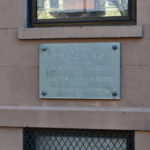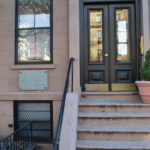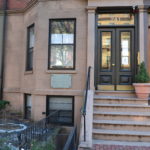
Julia Ward Howe
Boston, MA 02116 United States
While visiting Washington DC in November 1861, Julia Ward Howe woke up in the middle of the night with a song in her head. Earlier that day, she had heard Union army troops singing along to “John Brown’s Body,” a marching song about the controversial abolitionist, when a friend suggested: “Why do you not write some good words for that stirring tune?” Those words, born from a hazy dream, became the lyrics to “Battle Hymn of the Republic,” the rousing anthem for the Union during the Civil War, and a popular song in anti-slavery and suffrage movements for decades to come.
Following the success of “Battle Hymn,” Howe used her newfound fame to advance an activist agenda. She published the suffragist magazine Women’s Journal and edited the abolitionist newspaper The Commonwealth, along with her husband Samuel Gridley Howe, a physician and founder of the Perkins School for the Blind. She founded and led several women’s rights organizations over the years, including the New England Women’s Club, New England Woman Suffrage Association, and the Association for the Advancement of Women. Following the Civil War, Howe penned the “Mother’s Day Proclamation” in 1870 as an appeal for the women of the world to unite for peace and reform the politics that governed their societies.
Born into a wealthy New York family, Howe crossed paths with several historic figures at an early age due to her father’s status as a successful banker, including Charles Dickens, Charles Sumner, and Margaret Fuller (whom Howe later published a biography about). After meeting her husband in 1841, the couple settled down in South Boston and raised a family of six children. Howe’s reputation as an activist and social butterfly covered up deeper misgivings about her life, as revealed through a series of anonymous and intensely personal poetry collections that alluded to her stultifying marriage and society’s oppressive gender roles.
Howe became the first woman elected to the American Academy of Arts and Letters in 1908. She passed away in her home two years later, at the age of 91, from pneumonia. Her children collaborated on a biography of her life which was published in 1916 and won the Pulitzer Prize for Biography. She is buried in Cambridge at the Mount Auburn Cemetery.
Upcoming Events
- There were no results found.
Events List Navigation
Events List Navigation
Did You Know?
Certain books were “banned in Boston” at least as far back as 1651, when one William Pynchon wrote a book criticizing Puritanism.


